Pakistan's three musical maestros nominated for AKMA
Ustad Naseeruddin Saami, Juman Latif, and Ustad Noor Bakhsh carry Pakistan's rich traditions onto the global stage
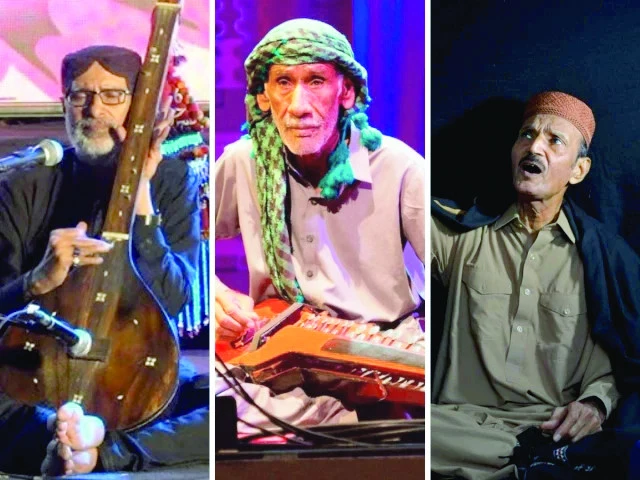
The finalists for the Aga Khan Music Awards (AKMA) 2025 have been announced, bringing global attention to a diverse line-up of artists whose work reflects both tradition and innovation.
Among the 22 nominees from around the world, three hail from Pakistan: Juman Latif, Ustad Noor Bakhsh, and Ustad Naseeruddin Saami. Their inclusion places Pakistan firmly within the spotlight of this year's edition of one of the world's most respected cultural awards.
The Aga Khan Music Awards, established in 2018 by Prince Karim Aga Khan IV, recognise exceptional creativity, promise, and enterprise in music performance, education, preservation, and revitalisation in societies where Muslims have a significant presence.
The awards seek to advance pluralism, tolerance, and global understanding through music — an art form that transcends boundaries even in times of conflict and division. For Pakistan, the nominations represent a powerful recognition of three figures, who embody the breadth and richness of its musical heritage.
Ustad Saami, one of this year's Pakistani nominees, is revered as a master of 'Khayal'. His career has been dedicated to sustaining one of South Asia's oldest and most demanding forms of classical music, rooted in the Delhi Gharana tradition.
He is celebrated as the only living practitioner of the intricate 49-microtonal Surti scale, a legacy that has been passed down through generations of oral tradition. His unmatched pitch precision and commitment to this art form make him an outstanding candidate for recognition on the world stage.
Alongside him stands Juman Latif, often affectionately known as "Fakir Juman." At 48, Latif has spent over three decades teaching and performing the raags of Shah Abdul Latif Bhitai, one of Sindh's most venerated Sufi poets.
His life is a testament to devotion: he sings outside Bhitai's shrine, supervises teaching of the raags at local schools, supports his family, and travels internationally to spread the poet's enduring message of love and peace. Latif's presence in the nominations highlights how spiritual music rooted in ritual practice can simultaneously thrive in contemporary, global settings.
Ustad Noor Bakhsh, represents the vibrant sounds of Balochistan. A virtuoso of the benju, an instrument he has played since childhood, Bakhsh's work is deeply grounded in Balochi musical forms while also enriched by South Asian ragas.
He brings a spirit of experimentation to his playing, blending classical influences with folk tunes across Pakistan's many languages. Though living far from the cultural capitals, his artistry has travelled widely, earning him recognition as both a custodian of tradition and a daring innovator.
These three musicians stand alongside an international group of nominees that underscores the awards' commitment to diversity. Finalists include Kamilya Jubran from Palestine, Derya Turkan from Turkiye, Senny Camara from Senegal, Hamid El Kasri from Morocco, Ghalia Benali from Tunisia, and Mamadou Diabate from Burkina Faso, among others.
The presence of artists spanning from Greece to India, Lebanon to Mali, and Egypt to Syria underlines the global reach and universal spirit of the awards. This year's winners will be announced on November 4, chosen by an independent master jury of eminent performers, composers, scholars, and festival directors.
The award ceremony itself will be held on November 22 at London's Southbank Centre, taking place across the Royal Festival Hall, Queen Elizabeth Hall, and the Purcell Room. The event will be the centrepiece of four days of musical celebrations from November 20 to 23, bringing together artists, scholars, and audiences in recognition of music's power to connect and inspire.
Winners will share a prize fund of $500,000, alongside professional opportunities such as commissions, recordings, management contracts, and support for preservation and educational initiatives.
The awards' impact, therefore, goes beyond recognition, providing tangible resources for musicians to sustain and expand their work. Importantly, the awards are open to all, regardless of faith, and nominees need not be Muslim to qualify.
The 2025 edition carries particular significance as it unfolds under the patronage of Prince Rahim Aga Khan V and Prince Amyn Aga Khan, continuing the vision of the late Prince Karim Aga Khan IV. The founder's deep belief in the unifying power of music remains central to the awards' mission, with this cycle reflecting both continuity and remembrance.
Pakistan's history at the Aga Khan Music Awards further highlights the country's cultural vitality. Past winners have included Zarsanga, hailed as the 'Queen of Pashtun Folklore', and Sain Zahoor, the celebrated Punjabi Sufi musician. Their recognition, alongside this year's three nominees, demonstrates how Pakistan's diverse traditions continue to resonate globally.
The complete list of finalists spans 22 names, representing an extraordinary tapestry of musical voices. From the Qalali Folk Band of Bahrain to India's Mohi Bahauddin Dagar, from Lebanon's Farah Kaddour to Iran's Sahba Aminikia, the range of genres and geographies mirrors the scope of the awards' ambition.
As anticipation builds ahead of November, the spotlight remains firmly on the Pakistani nominees. Ustad Saami with his unparalleled command of Khayal, Juman Latif with his devotion to Bhitai's raags, and Ustad Noor Bakhsh with his bold benju stylings each carry with them not only their individual legacies but also the broader musical identity of Pakistan.
Their recognition by the Aga Khan Music Awards reaffirms the enduring relevance of traditional forms, even as they are reimagined for new audiences. When the winners are finally announced, the names may be new to many outside the world of classical and traditional music.
Yet for those who follow, play, or simply listen, the awards are a reminder of music's ability to speak across languages, cultures, and generations. And for Pakistan, the inclusion of three nominees among the finalists is already a triumph worth celebrating.

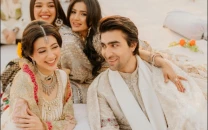
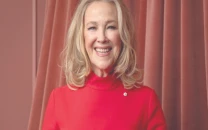



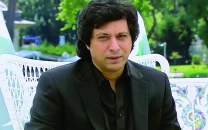

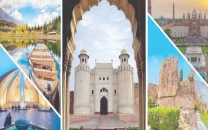












COMMENTS
Comments are moderated and generally will be posted if they are on-topic and not abusive.
For more information, please see our Comments FAQ